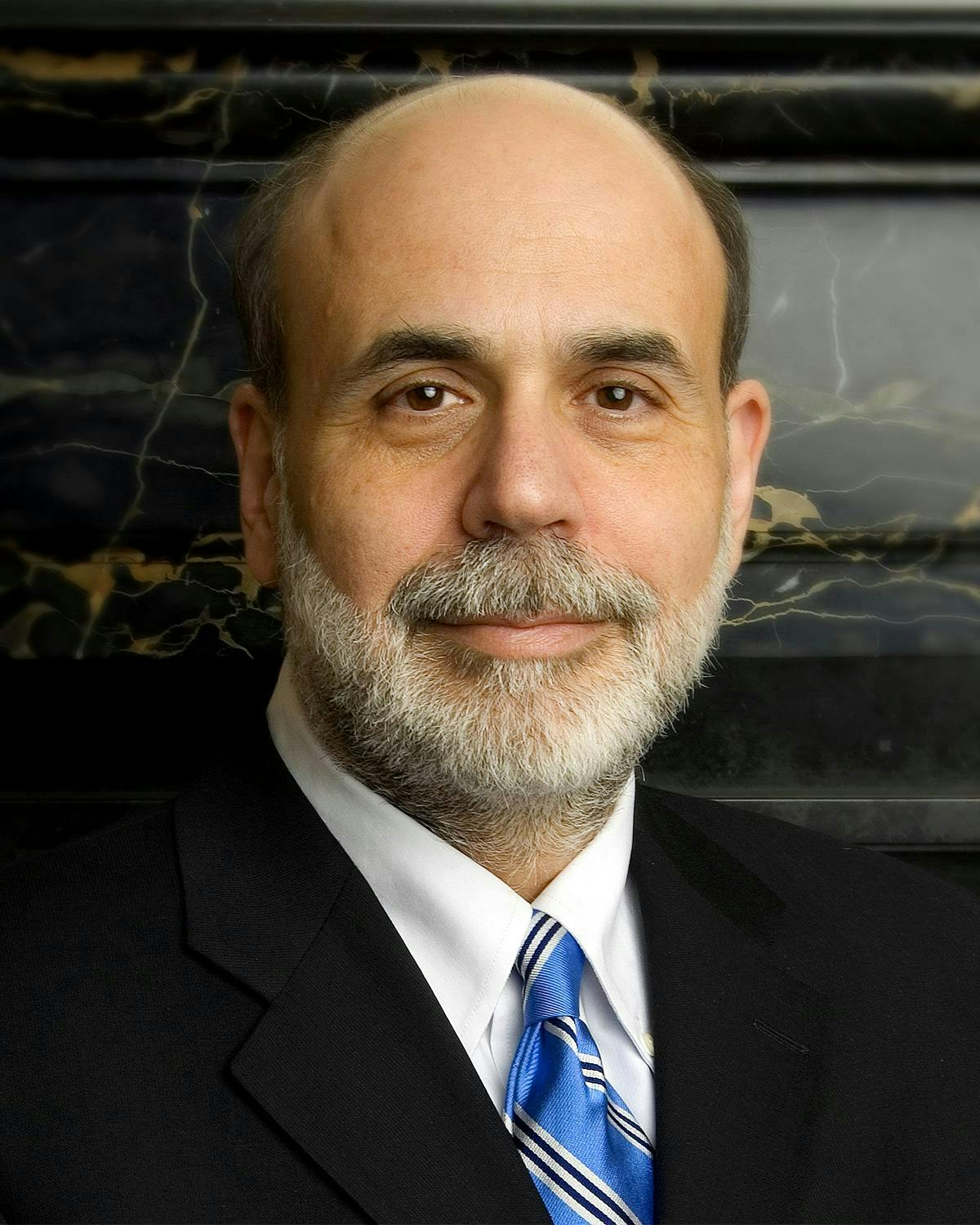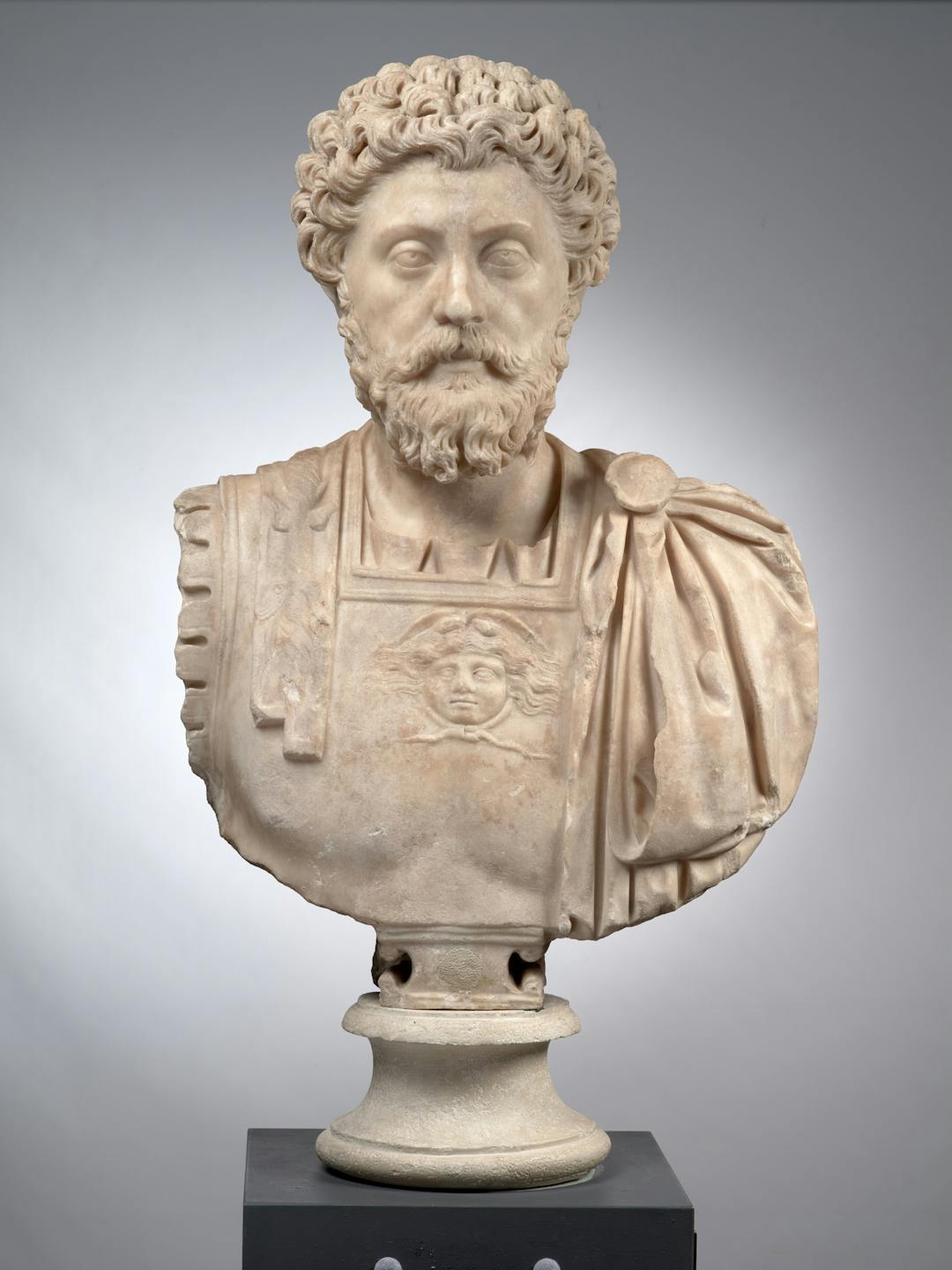Ben Bernanke
Why can’t your neighbour burn down his house?
Intro
Dr Ben Bernanke currently works as a Distinguished Fellow-in-residence with the Economic Studies Program at the Brookings Institution. However, he is best known for his role as Chairman of the Board of the Federal Reserve System (also known as the Fed) from 2006-2010, a period marked by the 2008 Financial Crisis. Many experts and influential leaders, including Barack Obama, credit Bernanke for “preventing another Great Depression”.
Bernanke is an expert in macroeconomics, specifically monetary policy. His ideas, which influenced many of the decisions taken by the Fed following the collapse in 2008, can be summarised by the ‘Bernanke Doctrine’ a speech he gave upon his initial appointment as a Governor of the Fed in 2004. He is a scholar of the Great Depression, specifically its underlying causes and the lessons that could be learned from it.
A former Princeton Professor, Dr. Bernanke has published several scholarly articles tackling a wide range of economic issues. He is the author of several books, including ‘The Courage to Act: A Memoir of a Crisis and its Aftermath’, which documents his experience as Chairman of the Federal Reserve during and after the 2008 financial crisis.
If you want to understand geology, study earthquakes. If you want to understand the economy, study the Depression1
On their shoulders
For millennia, great thinkers and scholars have been working to understand the quirks of the human mind. Today, we’re privileged to put their insights to work, helping organizations to reduce bias and create better outcomes.
Key Idea
“If we acted, nobody would thank us. But if we did not act, who would? Making politically unpopular decisions for the long-run benefit of the country is the reason the Fed exists as a politically independent central bank. It was created for precisely this purpose: to do what must be done—what others cannot or will not do.”[10]
A Monetarist and Scholar of the Great Depression
As an academic and Professor of Economics, Bernanke spent several years studying the causes and aftermath of the Great Depression, which occurred in the United States after the Wall Street Crash of 1929. Citing Milton Friedman as a major influence, Bernanke aligns himself with the Monetarist view that the Federal Reserve could have helped the economy recover much more quickly had it taken decisive action regarding money supply and interest rates.2 At the centre of Bernanke’s philosophy is the importance of constant money supply and ensuring that banks can access cash whenever they need to. His theory is that banks and financial institutions have become reluctant to lend when faced with a mild downturn, which further aggravates economic growth. In the case of the Great Depression, monetarists view the decision of the Feds to not bail-out the banks or purchase bonds to increase their levels of cash as the main reason the downturn was so catastrophic. This view, adopted by Bernanke and many economists around the world, brought about large changes in how we view recessions, and how we manage them.
"The U.S. government has a technology, called a printing press (or today, its electronic equivalent), that allows it to produce as many U.S. dollars as it wishes at no cost."[3]
“The Bernanke Doctrine”
In 2002, Bernanke made one of his first public speeches since his appointment as a Governor of the Federal Reserve. In Deflation: Making Sure "It" Doesn't Happen Here, he outlined why policymakers, and the Fed, in particular, should not overlook the challenge of deflation in their efforts to bring about price stability. Taking a rather prescriptive approach, Bernanke listed out his ideas of what the Fed needed to do to prevent economic decline and deflation in the United States.
Ironically, Bernanke’s speech didn’t gather much attention in the mainstream media at the time. However, when he was appointed Chairman of the Fed four years later in 2006, his speech was taken out of the archives and considered as his blueprint for the job, which some describe as one of the most powerful in the world.
“The only way to contain the economic damage of a financial fire is to put it out, even though it’s almost impossible to do that without helping some of the people who caused it.”[11]
Bernanke’s period in office is defined by the 2008 financial crash. Putting his monetarist views into action, the Fed focused on policies that increased the supply of money in the economy, "The US government has a technology, called a printing press, that allows it to produce as many dollars as it wishes at essentially no cost."3 Bernanke holds the view that money and liquidity should be easily distributed in the economy, which explains why the Fed decided to adopt a course of quantitative easing in late 2008, buying $600 billion in mortgage-backed securities to boost the money supply. This was followed by three more ‘rounds’ of such policies between 2007-2010.4
Another argument that Bernanke laid out in his 2002 speech, and subsequently implemented himself in office, was the ability of the Fed to cut interest rates to zero. Under Bernanke, the Fed lowered the rate 10 times, from 5.25% in September 2008, to 0% by December 2010. 5
Overall, Bernanke is an impressive example of applying academic knowledge to highly effective use in the real world. Critics (of which there are many!) claim he and the Fed should have seen the 2008 crash coming, and questioned why action wasn’t taken sooner. Others point to the decision to rescue Bear Stearns bank (only for it to collapse a few months later!), but allow the Lehman Brothers to go bankrupt.6 However in general, Bernanke is remembered for his pioneering ideas and decisive action.
Biography
“In many spheres of human endeavor, from science to business to education to economic policy, good decisions depend on good measurement.”[12]
Dr. Ben Bernanke was born in December 1953 in Augusta, Georgia, though he mainly grew up in Dillon, South Carolina. He received a B.A. and M.A. in Economics from Harvard University, followed by a Ph.D. in 1979 from the Massachusetts Institute of Technology. 7 Bernanke started his career in academia, working initially as an Assistant Professor (1979-1983) and then as an Associate Professor (1983-1985) at the Graduate School of Business at Stanford University. He made the move to Princeton University in 1985, serving as Chair of the Economics Department and the Howard Harrison and Gabrielle Snyder Beck Professor of Economics and Public Affairs. 8
Bernanke first joined the Board of Governors of the Federal Reserve System in 2002. President George W. Bush subsequently nominated him to the President's Council of Economic Advisers in June 2005. A year later, the President appointed him as Chairman of the Fed. Bernanke’s first term was marked by the 2008 financial crisis, during which he implemented a number of radical policies - including a slashing of interest rates from 5.5% to 0%, quantitative easing, and the purchase of Treasury bond securities and mortgage-backed securities (MBS) aimed at increasing the money supply in the economy. He was re-appointed by President Barack Obama in 2010, although his second term was marked with criticism from economists and legislators alike, who claimed his policies led to higher inflation and levels of both corporate and individual debt.
“The lesson of history is that you do not get a sustained economic recovery as long as the financial system is in crisis.”[13]
According to IDEAS/RePEc,9 Bernanke is one of the 50 most published economists in the world. He has written hundreds of scholarly papers which were published in journals such as the Quarterly Journal of Economics, American Economic Review, and the Journal of Economic Perspectives. His books include: ‘The Courage to Act: A Memoir of a Crisis and its Aftermath’, ‘The Federal Reserve and the Financial Crisis’ and two textbooks ‘Principles of Economics’ (with Robert Frank, 2000) and ‘Macroeconomics’ (with Andrew Abel, 2008).
Bernanke is a Fellow of the Econometric Society, the American Academy of Arts and Sciences and was also awarded both Guggenheim and Sloan fellowships. He was nominated President of the American Economic Association in 2017 and has held Senior Advisor positions with PIMCO and Citadel since 2015.
“You have a neighbor who smokes in bed. . . . Suppose he sets fire to his house,” I would say later in an interview. “You might say to yourself . . . ‘I’m not gonna call the fire department. Let his house burn down. It’s fine with me.’ But then, of course, what if your house is made of wood? And it’s right next door to his house? What if the whole town is made of wood?”[10]
Additional Content
Books
Bernanke, B. S., Geithner, T. F., & Paulson, H. M. (2019). Firefighting: The financial crisis and its lessons. Penguin Books.
Bernanke, B., & Frank, R. (2012). Principles of macroeconomics (Vol. 24, pp. 621-40). in Australia by McGraw-Hill Education (Australia) Pty Ltd Level 2, 82 Waterloo Road, North Ryde NSW 2113.
Abel, A. B., & Bernanke, B. (2008). Macroeconomics.
Bernanke, B. S., (2005), The Courage to Act: A Memoir of a Crisis and its Aftermath, New York: W. W. Norton.
Papers
Bernanke, B. S. (2018). The real effects of disrupted credit: evidence from the global financial crisis. Brookings Papers on Economic Activity, 2018(2), 251-342.
Bernanke B.S, Boivin J (2005) “Measuring the Effects of Monetary Policy: A Factor-augmented Vector Autoregressive (FAVAR) Approach,” Quarterly Journal of Economics 120.1, pp.387-422
Bernanke, B., & James, H. (1990). The gold standard, deflation, and financial crisis in the Great Depression: An international comparison (No. w3488). National Bureau of Economic Research.
Articles
The New York Times (2020), Ben Bernanke: I Was Chairman of the Federal Reserve. Save the States.
Lectures
National Economists Club (2002), Deflation: Making Sure "It" Doesn't Happen Here
IMF (2015). “Federal Reserve Policy in an International Context,” International Monetary Fund’s 16th Jacques Polak Annual Research Conference.
Interviews
Brookings Institution (2018), Ben Bernanke takes a scholarly look at what made the Great Recession so bad
60 Minutes (2019), 2009: Ben Bernanke's greatest challenge
CBS (2017), Former Federal Reserve chairman weighs in on Trump economic policy
References
- https://www.inspiringquotes.us/author/9093-ben-bernanke#:~:text=%E2%80%9CIf%20you%20want%20to%20understand,economy%2C%20study%20the%20Depression.%E2%80%9D&text=%E2%80%9CLike%20gold%2C%20U.S.%20dollars%20have,are%20strictly%20limited%20in%20supply.
- Fiebiger, B., & Lavoie, M. (2020). Helicopter Ben, monetarism, the New Keynesian credit view and loanable funds. Journal of Economic Issues, 54(1), 77-96.
- https://www.federalreserve.gov/boarddocs/Speeches/2002/20021121/default.htm
- https://www.investopedia.com/terms/b/benbernanke.asp#:~:text=Ben%20Bernanke%20was%20instrumental%20in,economy%20into%20a%20downward%20spiral.&text=By%20reducing%20the%20federal%20funds,loans%20to%20consumers%20and%20businesses.
- https://www.federalreservehistory.org/essays/great-recession-of-200709
- https://www.theatlantic.com/magazine/archive/2015/01/how-the-fed-flubbed-it/383496/
- https://www.brookings.edu/experts/ben-s-bernanke/#:~:text=Dr.-,Ben%20S.,both%20Presidents%20Bush%20and%20Obama.
- https://www.brookings.edu/wp-content/uploads/2016/07/20170501-bernanke-cv.pdf
- https://ideas.repec.org/e/pbe55.html
- Bernanke, B. S. (2015). The courage to act: A memoir of a crisis and its aftermath. WW Norton & Company.
- Bernanke, B. S., Geithner, T. F., & Paulson, H. M. (2019). Firefighting: The financial crisis and its lessons. Penguin Books.
- https://www.federalreserve.gov/newsevents/speech/bernanke20120806a.htm
- https://www.cbsnews.com/news/ben-bernankes-greatest-challenge/
About the Author
The Decision Lab
The Decision Lab is a Canadian think-tank dedicated to democratizing behavioral science through research and analysis. We apply behavioral science to create social good in the public and private sectors.





